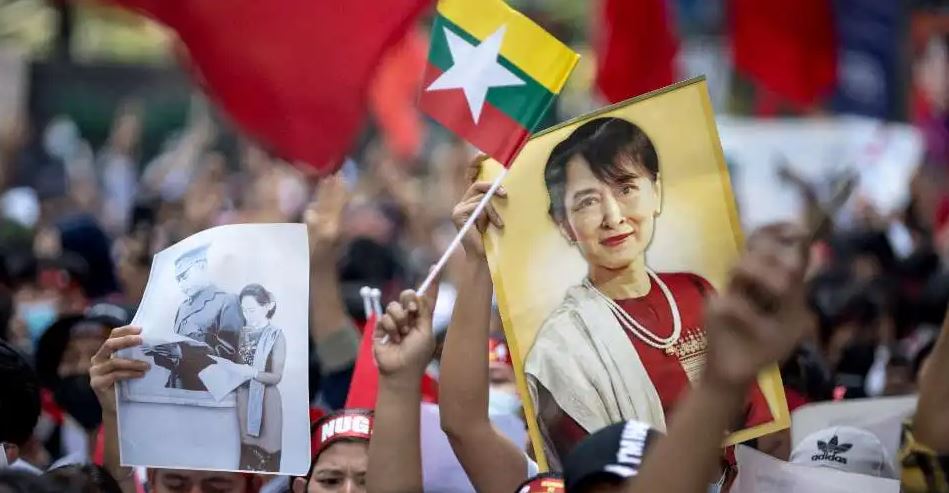Vatican City: In a bold move to support peace and human rights, Pope Francis has offered asylum to Myanmar's imprisoned leader, Aung San Suu Kyi. This significant offer was disclosed in late September during private discussions with Jesuits in Indonesia earlier this month.
The Pope revealed that he had called for Suu Kyi's release and suggested the Vatican as a potential refuge for the former leader, who has been imprisoned since a military coup in February 2021, according to Reuters. Photo courtesy: Reuters.
Speaking at a gathering of around 200 Jesuits during his trip to Southeast Asia from September 2 to 13, Pope Francis emphasized Suu Kyi’s symbolic significance, stating that political figures representing democratic resistance must be protected.
The Pope’s comments highlight his ongoing advocacy for a peaceful resolution in Myanmar, a country ravaged by conflict since the coup that ousted Suu Kyi’s government following her party's landslide victory in the 2020 elections.
"We cannot remain silent about the situation in Myanmar today. Action must be taken," Pope Francis reportedly said.
He called for the future of Myanmar to be built on peace, respect for human dignity, and a democratic system that ensures everyone’s contributions to the common good.
Aung San Suu Kyi, 78, is currently serving a 27-year prison sentence, facing numerous charges including corruption and violating COVID-19 restrictions. Once celebrated globally as a symbol of democracy and human rights, Suu Kyi's image was tarnished in 2017 when she faced criticism for her silence over the military's persecution of Myanmar’s Rohingya Muslim minority.
This crackdown has led to ongoing genocide investigations by the United Nations.

Myanmar, a predominantly Buddhist nation, has been in a state of chaos since the 2021 military coup. The junta faces resistance from both established ethnic rebel groups and new pro-democracy forces. Violence has escalated across the country, displacing over three million people and damaging more than 100 places of worship.
Religious minorities, especially Christians, have been disproportionately affected by the conflict. Reports of ethnic cleansing campaigns targeting Christian communities have surfaced, with one recent attack involving the shooting of a priest during Mass in Kachin State. Despite Myanmar's constitutional guarantee of religious freedom, fundamentalist forces have grown in strength, posing further threats to religious minorities.
The Catholic Church, alongside humanitarian organizations, has been actively involved in delivering aid to those affected by the conflict. However, the challenges are immense as the military junta continues its reign of repression. Pope Francis has consistently spoken out on the situation in Myanmar, calling for international attention and advocating for peace.
His offer of asylum to Aung San Suu Kyi signals his deep commitment to supporting both the country’s leaders and its people as they strive for reconciliation and justice.